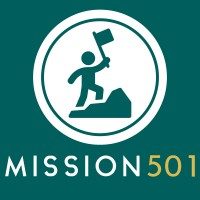
It is notable that many people may find they identify with more than one domain, or they may find that not all four domains apply to their specific circumstances. This is not intended to categorize a person into one single status, nor is it intended to exclude anyone who identifies in a way not mentioned. Rather, it is intended to reflect on where someone’s knowledge, lived experience, and expertise may bring recognition of how they can impact disability employment awareness positively in the future.
Domain 1: Individual Goals and Expectations
The primary domain of disability employment involves individual job seekers and employees and their goals and expectations. Individuals are at the center of their respective goal-setting – after all, without a job seeker, there’s no job to find! As early in life as possible, people must be informed of the expectations of employment, and the impact working (or not working) has on a person’s life. All too often, expectations not being properly presented leads to biased choices for programs that do not offer the independence and promise of a self-sustainable life that gainful employment can provide. Parents and educators play the crucial role of implementing early exposure to vocational options during the developmental years. Benefits counseling is impactful for individuals and those providing informed guidance. Lived experiences, both of successful outcomes and barriers preventing success, inform us of potential reinforcers and mitigating actions to improve outcomes for all.
Domain 2: Employer Partnerships
As with the individual and their goals and expectations, there cannot be successful placements without employers who have open positions. Perhaps the biggest factor in the employment partnership domain is the understanding of how supported employment for a person with a disability works. Without transparency and proper setting of expectations, an employer may have a poor experience hiring someone with a disability or collaborating with employment support professionals – and these poor experiences can leave long-term damage behind. Furthermore, employers who are educated by employment support professionals and their allies in employment incentives, providing accommodations, and promoting diversity, equity, and inclusion for all employees in their respective workplaces are set up for success that can cross-pollinate other employers and vocational fields. Communication with employers at times, and in ways, that make sense for each employer is key to understanding how it all works and how everyone benefits from a partnership.
Domain 3: Professional Development
Service provider agencies and independent professionals engage in the daily undertaking of best practices in disability employment services, from career exploration to job development and interviewing, placement, onboarding, and throughout the employment journey. Equipped with the right training, a good employment support professional can be the difference in an overall outcome. Unfortunately, many direct service professionals today do not feel they can sustain careers in the disability employment field – whether it is low wages, lack of career advancement opportunities, or burnout from lack of resources. Admittedly, I have a small bias towards this domain, as my consulting focuses largely on the staff experience in achieving the mission of employment for all. Without a solid foundation of experienced employment support professionals, there will always be the feeling of treading water, endless recruitment, onboarding, and introductory training. This in turn harms outcomes for individuals, negatively affecting perspectives of employment as an option for a good life. Investment in employment support professionals – both financially and behaviorally – must be a key focus in recognizing disability employment awareness.
Domain 4: Policy Advocacy
Perhaps the least understood domain for many in the arena is policy advocacy – but it is also the domain that permeates across all other domains most significantly. While not inclusive of all policies, the Rehabilitation Act of 1973, the Americans with Disabilities Act (ADA) of 1990, the Individuals with Disabilities Education Act (IDEA) of 2004, the Workforce Incentive and Opportunities Act (WIOA) of 2014, and today’s movements such as APSE’s Employment First mission continue to empower advocates to change regulations in favor of diversity, equity, and inclusion for all individuals in the workforce. Regardless of where you may identify yourself or your perspective across the other domains, each of us has a voice in how our policies are shaped – and so few of us speak up. Being aware of where your local, state, and federal government officials stand on disability employment policies allows us to inform them with success stories, barriers, and innovative ideas to make employment not only the preferred outcome for people with disabilities, but the real, primary outcome in practice.
Moving Forward!
As one reflects on these domains and how they apply to individual circumstances, let this National Disability Employment Awareness Month be a time to ask, “What am I doing to move disability employment forward, and how can I bring awareness to it?” A history of success cannot sustain itself on history alone – history needs forward progress to feed its legacy. Connect with others within your identified domains – and more importantly, in other domains. Bring everyone to the table. Disability employment awareness must be about more than people and jobs – it must involve ALL stakeholders that play crucial roles in achieving desired outcomes.
About the Author
